Names and case details have been changed to protect the identities of everyone involved.
Volunteers with the National Runaway Safeline go through extensive training to prepare them for a variety of situations. We prepare our volunteers to talk to youth about running away and the consequences that may follow. We learn about the signs of labor and sex trafficking, various types of abuse, and how to report these situations. We work to ensure that our volunteers are well-prepared for these very serious circumstances that youth might find themselves in. This training helps Crisis Services Team Members be calm, supportive and helpful at what might be the worst time in a young person’s life.
But what can we do for someone that is having a hard time at home and isn’t in particular danger? There are often cases where the youth’s situation isn’t that “serious”. They may slip through the cracks of the system or may not qualify for resources. They may decide that leaving home is their best option, only to find that their once manageable situation has now become very dangerous. Young people like this make up a fair amount of the contacts NRS receives every day.
That’s where Johnny found himself. He’d been having a lot of issues at home with Mom. He wouldn’t describe her as abusive, but it felt like their dynamic wasn’t healthy. Arguments broke out over the smallest of things. His little brother seemed to get away with everything and Johnny was taking most of the blame whenever things got out of hand. Mom would brush off any complaints and just tell him she expected more of him whenever Johnny tried to bring it up. He felt trapped. He understood that she was doing what she could as the only parent in the home, but he also felt like he was being frequently punished for things that he couldn’t control.
The first thing a Crisis Services Team Member is trained to do in this kind of situation is ask the young person what they’ve already tried and what they’re thinking about doing now. Johnny shared that he’d been speaking to his older brother about his situation. His brother had similar issues with Mom in the past. His brother wanted Johnny to come live with him, but they both knew Mom wouldn’t be open to it. Johnny was considering running away to go live with his brother.
While non-directive (we don’t tell people what to do), NRS volunteers are welcome to suggest alternatives to a contact’s plan, in case the young person hasn’t considered a possible alternative. Johnny felt as if he had tried everything, but what he hadn’t considered is approaching Mom a different way. One new idea he liked was writing her a letter- something that he could let Mom read and absorb without things getting heated. He could really take his time, making sure he’d put all of his thoughts down on paper. He also considered asking someone to mediate the conversation, someone he already knew and trusted.
Mediators can be anyone in a youth’s life that they feel comfortable around. At NRS, we often suggest a school counselor, a friend’s parent, or a teacher. NRS also offers a mediation service if the young person is open to a conference call. In a conference call, NRS remains impartial, but works to make sure that both the parent and youth’s voices are heard. We enact rules of engagement to keep the conversation constructive and civil.
In this case, Johnny had a good relationship with his school counselor. He decided that he could talk to them later that week and even share his letter to Mom with them, so they might be able to give him feedback. Besides talking to NRS, this would be his first time involving someone else besides family in this matter. He was scared, but he had already done a brave thing by contacting NRS. He had proven to himself that he was capable of doing this and that he could do more.
Young people often reach out to NRS because they feel unheard or brushed aside by their families. It’s easy to believe that that is how it will always be and that things just won’t get better. In reaching out, Johnny found someone he could open up to. The Crisis Services Team Member appreciated what he had to say and validated his feelings. He hadn’t considered opening up to a trusted person in his life, let alone having them help him speak to Mom. Sometimes the simplest solutions are the hardest to see.
At NRS, it is our job to empower youth to take initiative in their own lives and help them safely navigate conflicts in their life. Running away doesn’t have to be the only option.
If you’re struggling with family conflict in your life, consider reaching out to NRS. We can help you communicate with your family members and find alternative solutions that keep you safe. We’re available 24/7 and are completely confidential. Reach out today!




